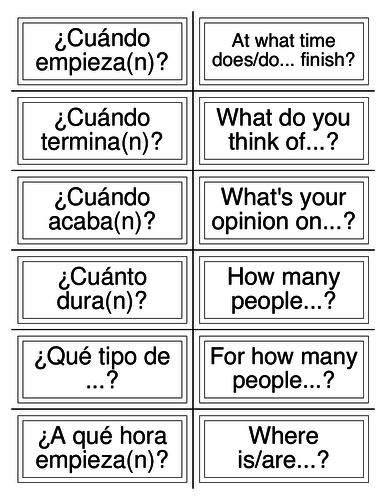

This lesson is one of two consecutive lessons. The second lesson is available by this author under the title “KS3/4 Spanish - Lesson 2- Forming / Asking Questions for GSCE (Edexcel & AQA)”. If you would like to purchase the first lesson, you can use the link: https://www.tes.com/teaching-resource/ks3-4-spanish-lesson-2-forming-asking-questions-for-gsce-edexcel-and-aqa-11856688 . If you would like to purchase both consecutive lessons as a pack, you can use the following link: https://www.tes.com/teaching-resource/ks3-4-spanish-forming-asking-questions-for-gsce-edexcel-and-aqa-x2-lessons-11856673
N.B. This lesson is designed to work in preparation for the GCSE Spanish Speaking Exam, with particular reference to the role play activity in which students will have to ask questions to the examiner (for Foundation, students ask one question, for Higher, students ask two questions). The lesson has been created to address the role play task as shown in the Edexcel exam board, but this lesson can be equally used in preparation for the AQA exam board.
- Lesson includes step-by-step activities to get students prepared for asking questions in Spanish, with specific examples which are created to reflect the style of instructions on the Edexcel examination.
- Includes tips and advice for students as well as teachers under the PowerPoint slides.
- Printable slides serving as reference material for students are provided.
- Differentiation in slides, including extension tasks.
- Asking questions is a key element in both the Foundation and Higher speaking examinations.
- Lesson is up-to-date and corresponds to the new Grades 9-1 GCSE.
- Handout for students is provided, either as a separate file (included) or as hidden slides within the PowerPoints.
- The questions students are asked to form cover a broad range of topics which are part of the GCSE syllabus.
- CfU (Checking for Understanding)/AfL activities are provided throughout.
- Promotion of student thinking and independence in ‘think, pair, share’ activities.
- Plenaries provided to ensure students can gather information on the understanding and progress of their students.
Something went wrong, please try again later.
This resource hasn't been reviewed yet
To ensure quality for our reviews, only customers who have purchased this resource can review it
Report this resourceto let us know if it violates our terms and conditions.
Our customer service team will review your report and will be in touch.
